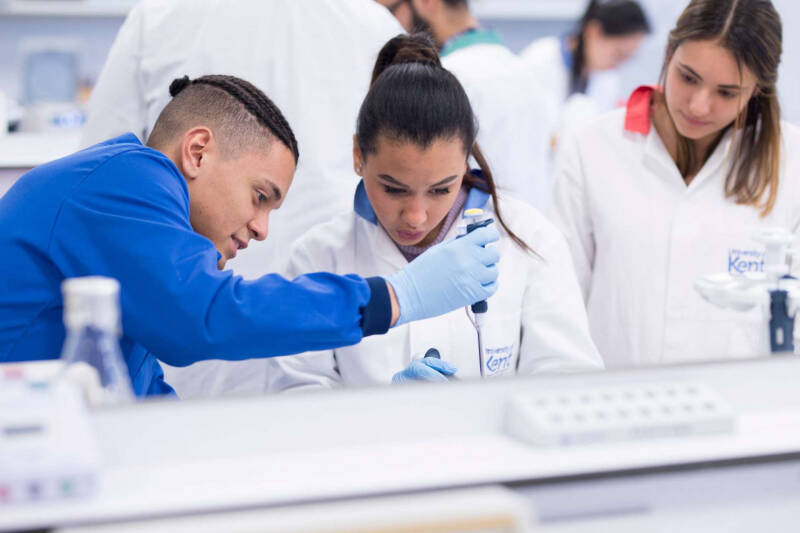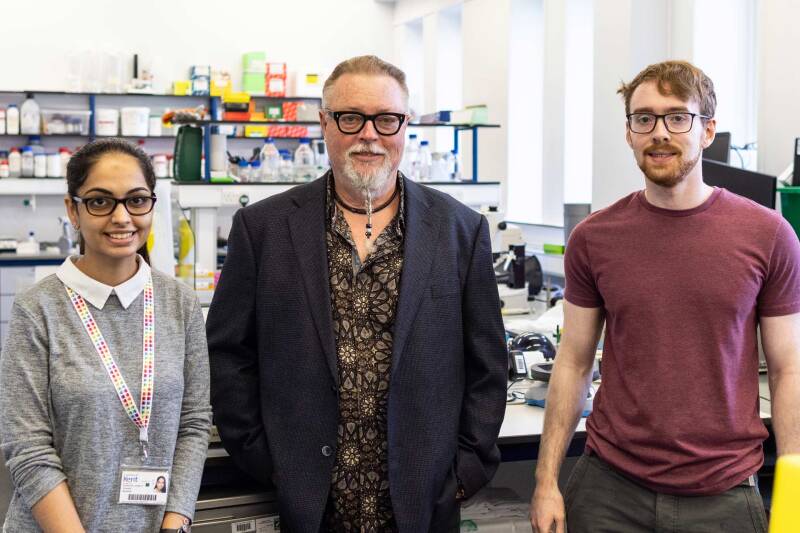The Jane Irons Scholarship Programme
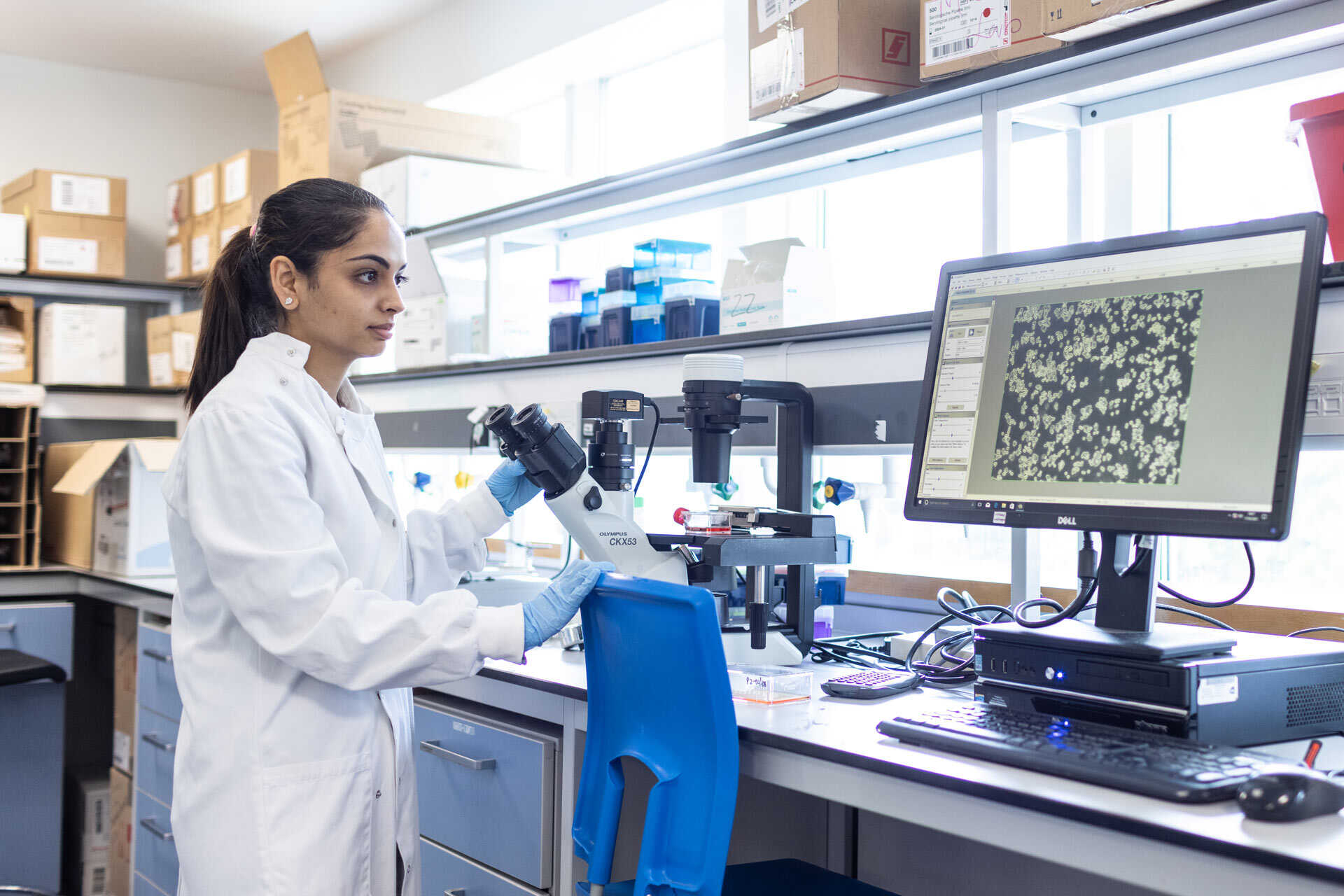
THE JANE IRONS SCHOLARSHIPS
Constantly questioning, constantly learning
By Alex Perkins
Solving the problems of cancer drug delivery and drug efficacy – how one Kent scholar hopes to benefit humankind by providing better treatments for people diagnosed with cancer.
Chandni Manwani was born in Mumbai on the western coast of India. At an early age she was already developing an investigative mind and a passion for research. A self-confessed nerd who loves science memes, she admits to sometimes having difficulty controlling her laughter in serious situations. “In a parallel universe”, she says, “I might have been a dog whisperer or an airplane pilot.” But now, thanks to the School of Biosciences’ acclaimed research programme, and the generous support of a remarkable local philanthropist, Chandni has embarked on a mission to change the world.
She is working in an exciting new area of Cancer Research and Drug Discovery: investigating the uses of Supramolecular Self-associating Amphiphiles (SSAs), which can work as novel enhancers of cancer treatment. SSAs are an exciting new class of molecule which were invented at Kent by Dr Jen Hiscock, who along with Professor Michelle Garrett, is one of Chandni’s PhD supervisors.
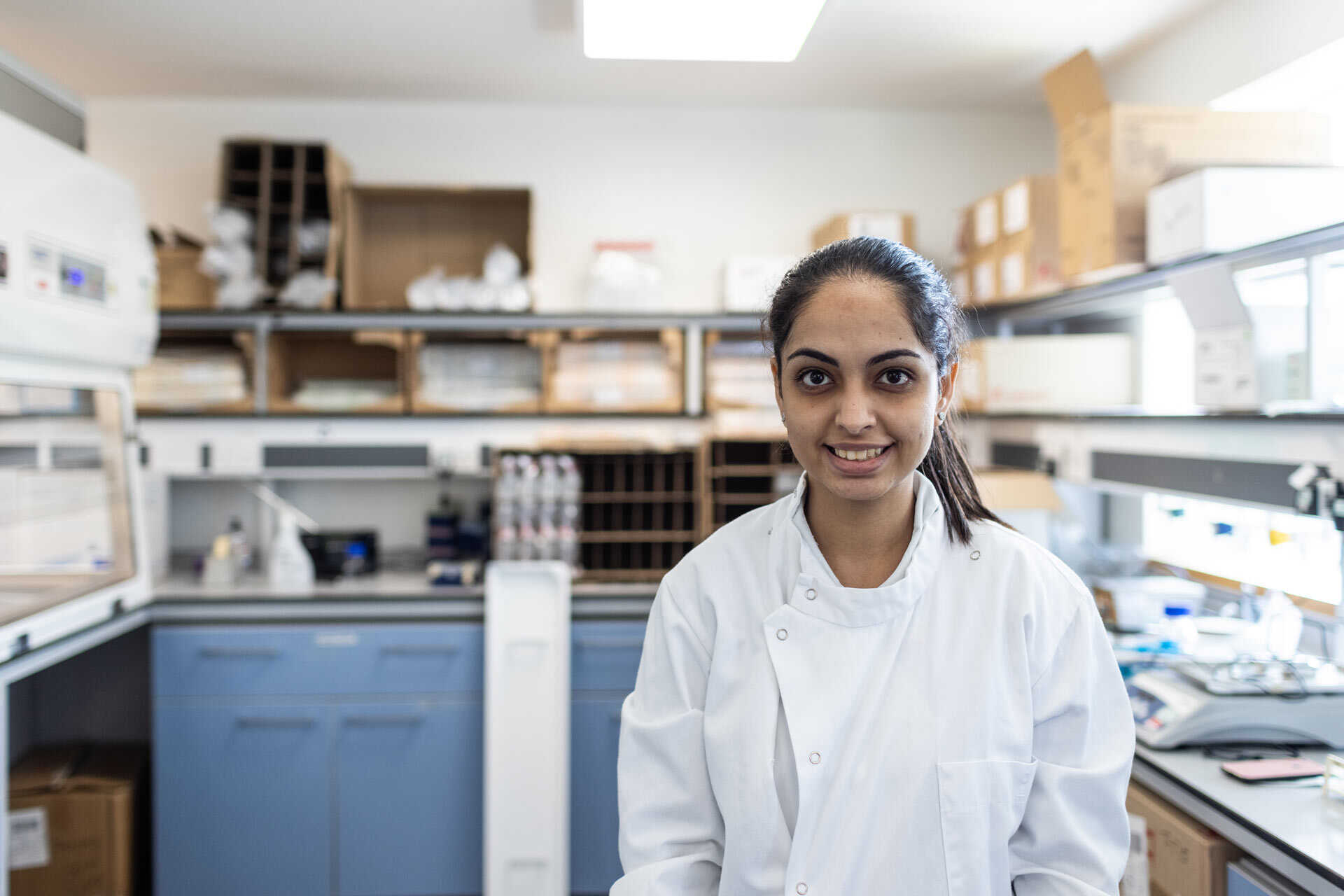
I truly believe my project has the potential to make a difference in the world...
Chandni Manwani
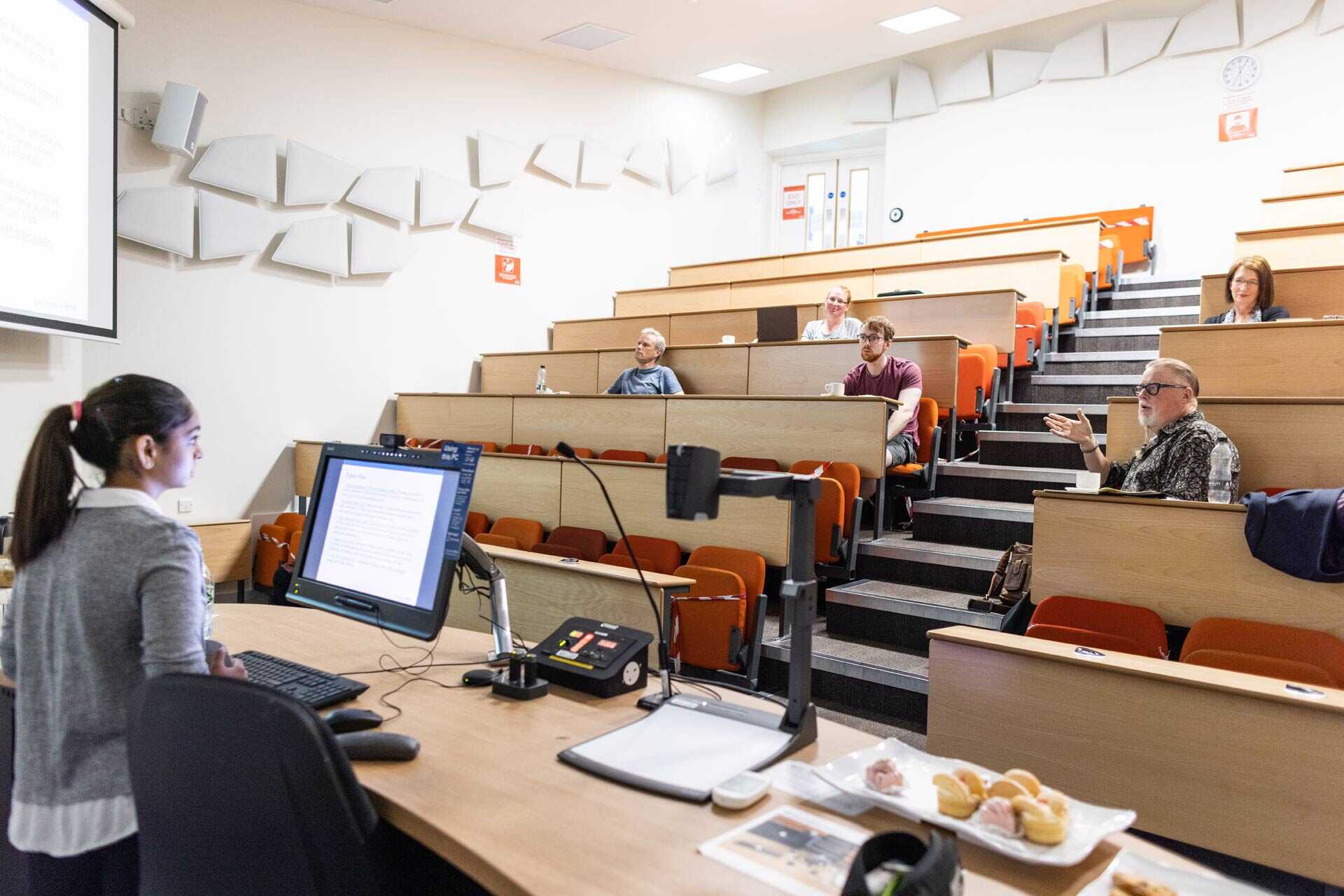
“Cancer is one of the biggest threats to humanity. Although we have made great progress in diagnosing and treating various subtypes, the increasing cases and poor survival rates of cancer have raised many relevant questions and I’m hoping my work will help answer them. It can have a huge impact in the clinical setting, helping doctors make better treatment strategies for their patients.”
Chandni’s PhD project is part of The Jane Irons Scholarship programme established to fund PhD students in the School of Biosciences by philanthropist Dr John Stolz, in memory of his late wife, Jane Irons.
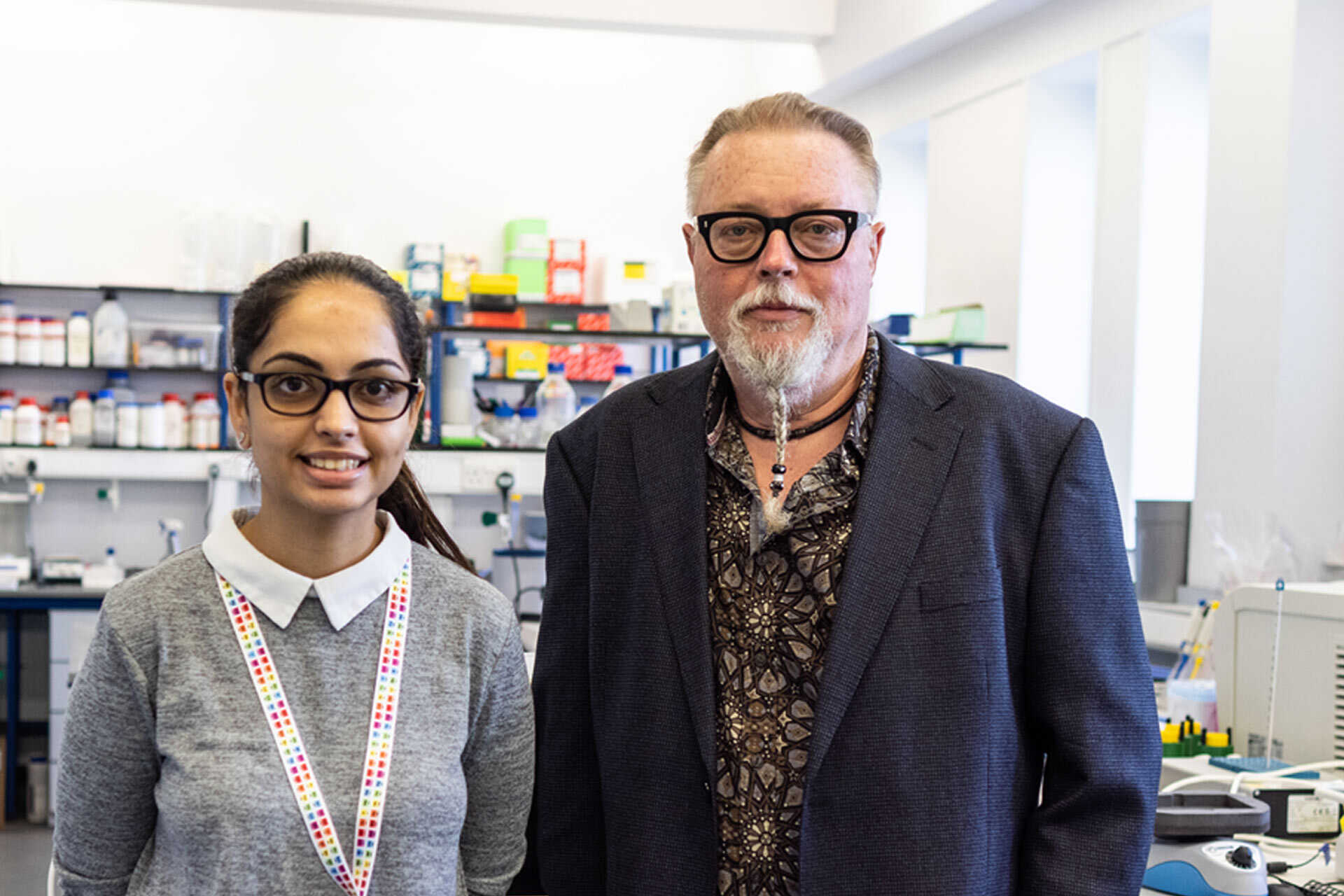
The Jane Irons Scholarships
“It is a pleasure to be able to support this work,” says Dr Stolz. “Fundamental research is often neglected in favour of research that provides more immediate and obvious benefits. However, we need to recognise that the modern world is based on research that, at the time, appeared to have no apparent nor obvious application. My late wife and I built our business in scientific publishing and communications and I am grateful for the opportunity to, in a small way, encourage fundamental science.”
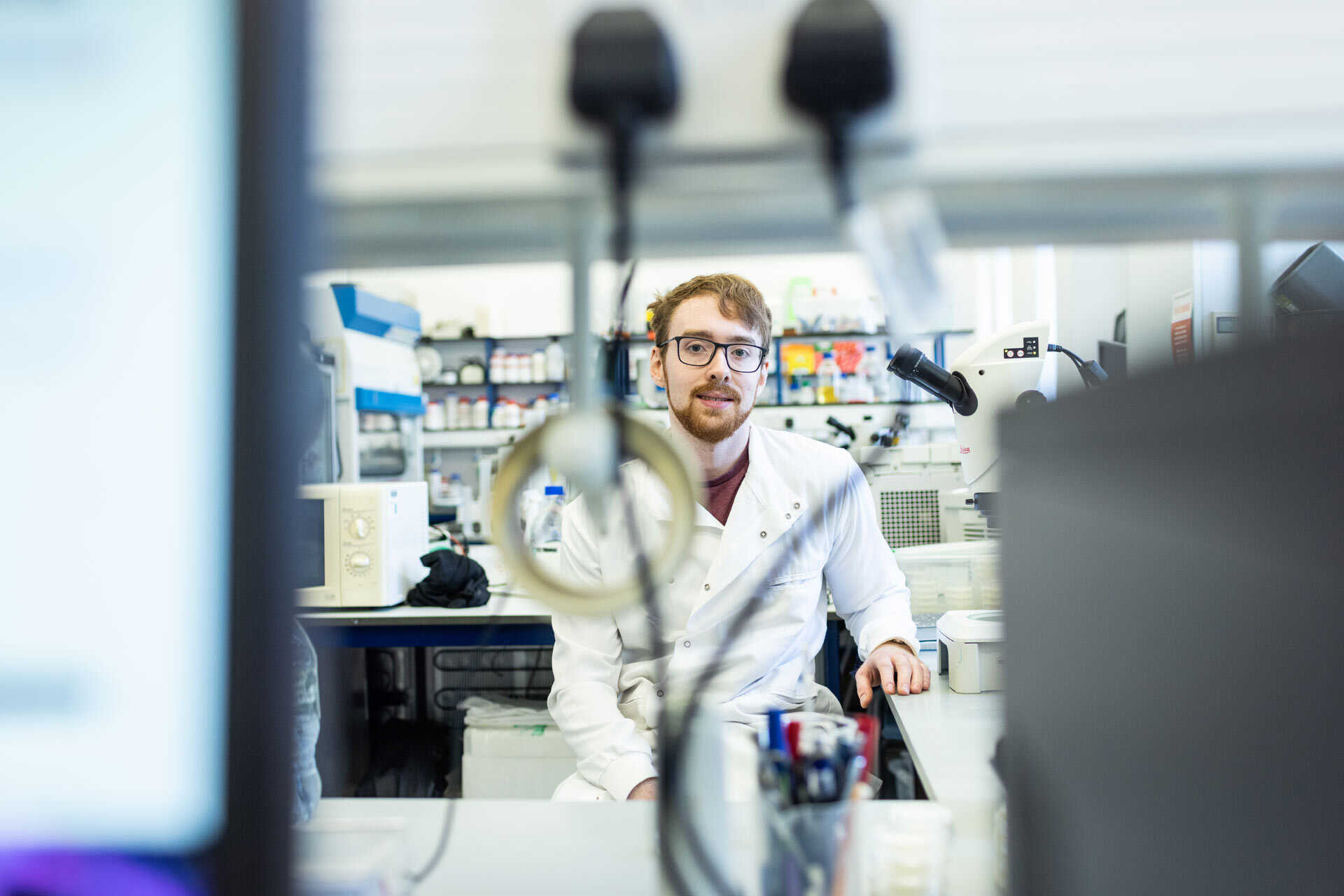
The worm-bug:
A new model to study how gut microbes affect the brain
Another ground-breaking area of research benefiting from John Stolz’ support for the School of Biosciences is being carried out by PhD Scholar Nathan Dennis under the supervision of Dr Marina Ezcurra (neuroscience, microbiome) and Dr Campbell Gourlay (mitochondrial biology).
Their exciting research is leading to an understanding of how the gut microbiome (community of microbes in the gut) can impact on brain function, behaviour and brain disorders. The project aims to develop new models to determine the mechanisms of interactions between the microbiome and the brain. Historically, neurological and neuropsychiatric disorders have been viewed as driven by defects in brain processes. However, thanks to the work of this team we are now starting to understand that the nervous system is affected by the metabolic and immune state of the body.
“Developing new tools to study the gut microbiome-brain axis in a laboratory setting will enable us to establish causative links and mechanisms,” explains Dr Marina Ezcurra, “by which microorganisms can alter the host nervous system and find microbiome-based strategies to improve health.”
Highlighted links
Discover our postgraduate Biosciences degrees
Showing courses
Filters
There are no courses matching these filters. Try choosing some different filters.
